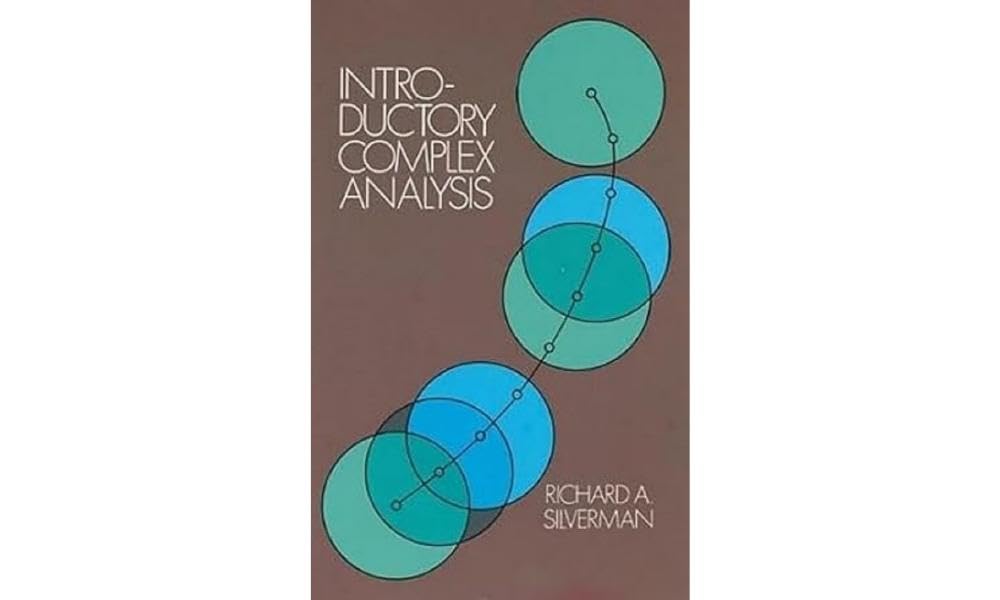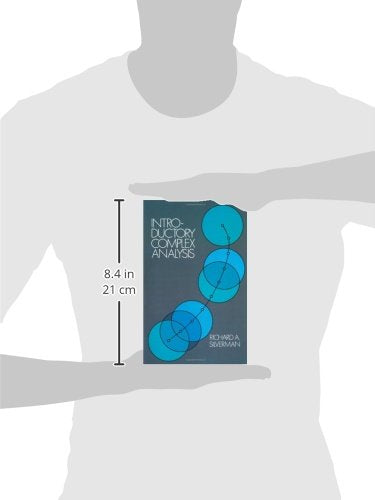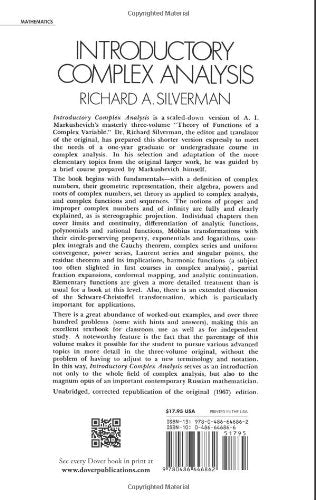Introductory Complex Analysis (Dover Books on Mathematics)
Introductory Complex Analysis (Dover Books on Mathematics) is backordered and will ship as soon as it is back in stock.
Couldn't load pickup availability
Genuine Products Guarantee
Genuine Products Guarantee
We guarantee 100% genuine products, and if proven otherwise, we will compensate you with 10 times the product's cost.
Delivery and Shipping
Delivery and Shipping
Products are generally ready for dispatch within 1 day and typically reach you in 3 to 5 days.
Book Details
-
Author: Richard A. Silverman
-
Publisher: Dover
-
Binding: Paperback
-
Number of Pages: 400
-
Release Date: 01-05-1984
-
Language: English
-
ISBN: 9780486646862
-
Package Dimensions: 8.5 x 5.6 x 0.9 inches
About The Book
Introductory Complex Analysis by Richard A. Silverman is a concise version of A. I. Markushevich's comprehensive three-volume Theory of Functions of a Complex Variable. This streamlined edition, tailored for one-year graduate or undergraduate courses in complex analysis, retains the essential concepts while omitting the more advanced material, making it an ideal introduction to the subject.
The book begins with foundational topics such as complex numbers, their geometric representation, algebra, powers, and roots. It then explores complex functions and sequences, set theory applied to complex analysis, and the important notions of proper and improper complex numbers. Through a carefully structured progression, Silverman introduces key concepts in complex analysis including limits, continuity, differentiation of analytic functions, and the properties of polynomials and rational functions.
Subsequent chapters cover a broad range of topics, including Mobius transformations, exponentials and logarithms, complex integrals, the Cauchy theorem, complex series, power series, Laurent series, harmonic functions, and analytic continuation. The book also includes an extended discussion of the Schwarz-Christoffel transformation, an essential tool for applications.
With an abundance of worked-out examples and over three hundred problems (many with hints and answers), this textbook is not only suitable for classroom use but also for self-study. The clear and structured approach makes complex analysis more accessible, and students can later expand their knowledge using Markushevich's original work, without needing to adapt to new terminology and notation. Introductory Complex Analysis is an excellent gateway to the field, providing both foundational learning and a bridge to more advanced studies.









